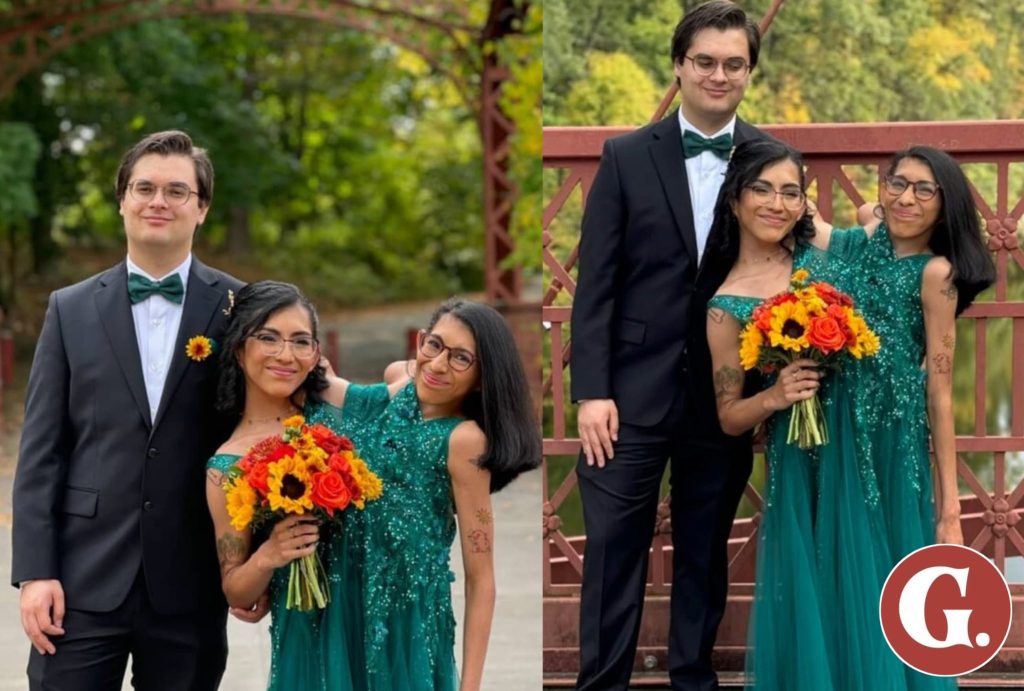Carmen Andrade Marries the Man She Loves While Her Conjoined Twin Lupita Chooses Singlehood—and Their Story Redefines What Love Looks Like
Some stories ask us to rethink everything we thought we understood about love, identity, and choice. Carmen and Lupita Andrade’s is one of those stories. If you’ve seen their radiant smiles on morning shows or scrolled past their viral TikToks, you know they are no strangers to curiosity. Born in 1999 in Veracruz, Mexico, and now living in Connecticut, the sisters are thoraco-omphalopagus conjoined twins: they share a pelvis, liver, circulatory system, and reproductive organs but have separate hearts, stomachs, and spines. Doctors once said their life expectancy was short. At twenty-five, they are busy proving the opposite—living, laughing, advocating, and, in Carmen’s case, falling in love.
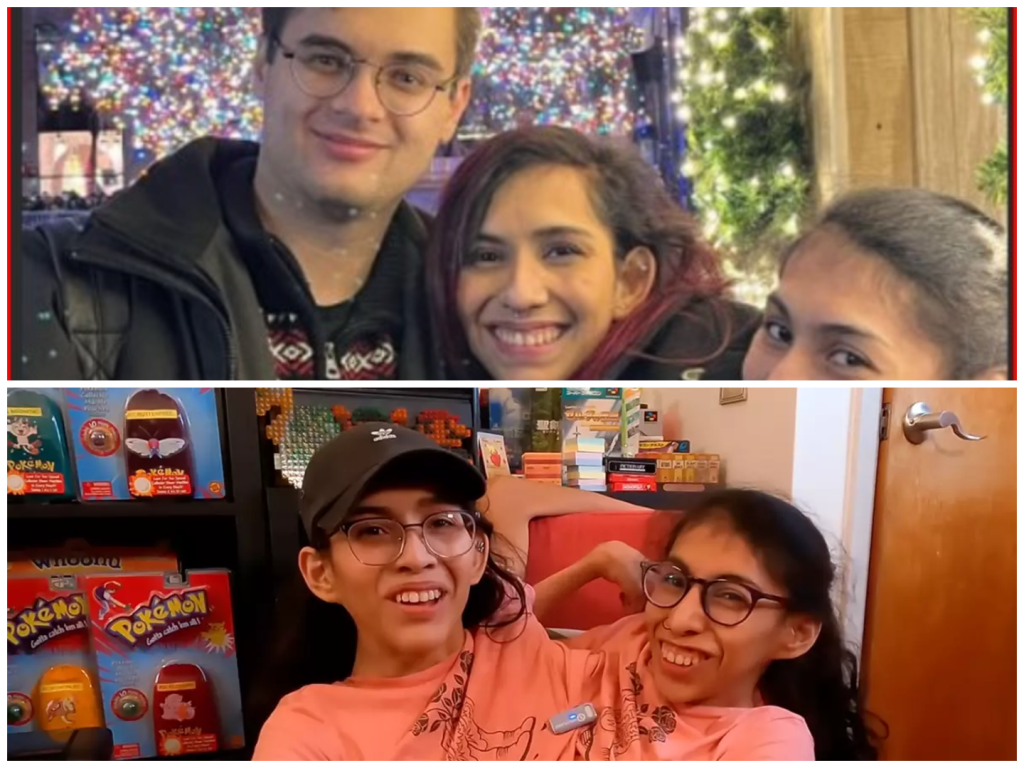
Carmen met Daniel McCormack in 2020 on the dating app Hinge. She says his opening message wasn’t about her condition at all but about her favorite animal—a playful nod that made her feel seen as more than a medical headline. A coffee date turned into movie nights, road trips, and quiet evenings talking about everything from their favorite memes to Carmen’s dream of working with rescue dogs. Through it all, Lupita was there—sometimes literally over Carmen’s shoulder—cracking jokes, teasing Daniel, and making sure her sister’s new boyfriend understood the dynamics of loving one twin without sidelining the other.
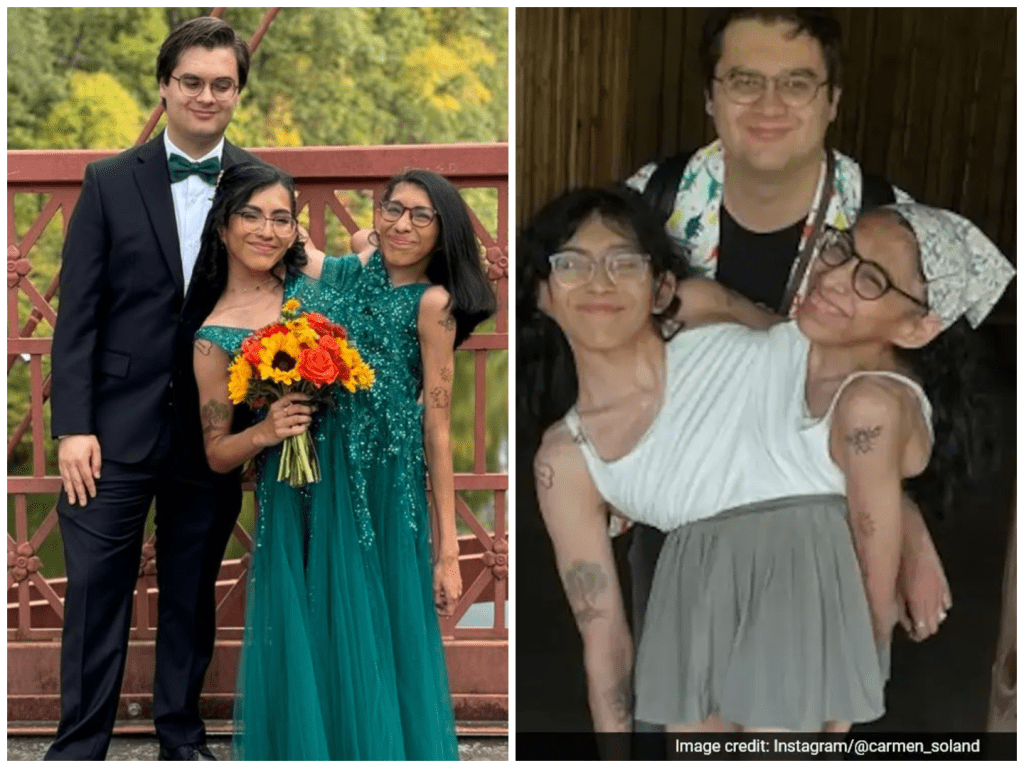
Because Daniel never made Carmen feel like half a person, she felt safe sharing deeper layers of her life. He learned which muscle spasms meant Lupita needed to shift, and he discovered there was room in their routine for one more toothbrush on the bathroom sink. The relationship evolved, like most do: text messages turned into “drop everything, I have to tell you this” phone calls, and weekend hangouts became “see you tomorrow” rituals. Except in their case, the daily calculus of partnership always included a third heartbeat—Lupita’s—whose contentment mattered just as much as Carmen’s.
That didn’t bother Lupita. She identifies as aromantic and asexual, and she says the best part of Daniel moving in is that he cooks better than both sisters combined. She remains clear about her boundaries and equally clear in her happiness for Carmen. The three of them plan grocery runs and Netflix queues without awkwardness because honesty has guided them from the start.
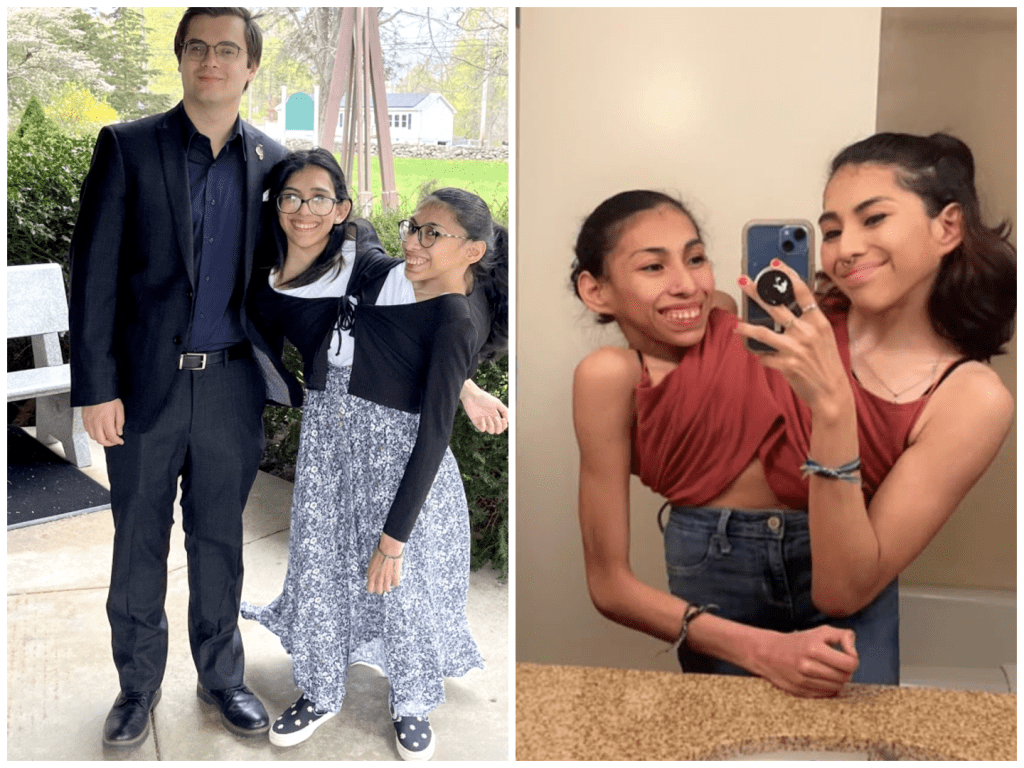
In October 2024, Daniel proposed. Carmen said yes. Lupita teased that she, too, should get a ring for “emotional support,” and Daniel obliged with a simple silver band. On a crisp autumn day, under rusty red trusses of Lover’s Leap Bridge in New Milford, Connecticut, Carmen walked—or rather, the twins walked—down a short aisle. Friends and relatives gathered by the water as leaves swirled around their emerald-green dress, custom-tailored to frame both sisters and leave room for Daniel’s arms around Carmen’s waist. Lupita stood beside her sister, bouquet in hand, as Reverend Lisa Wiseman pronounced Carmen and Daniel husband and wife. There were tears, applause, and an unmistakable pulse of awe at a love story the world rarely witnesses.
Redefining “Happily Ever After”
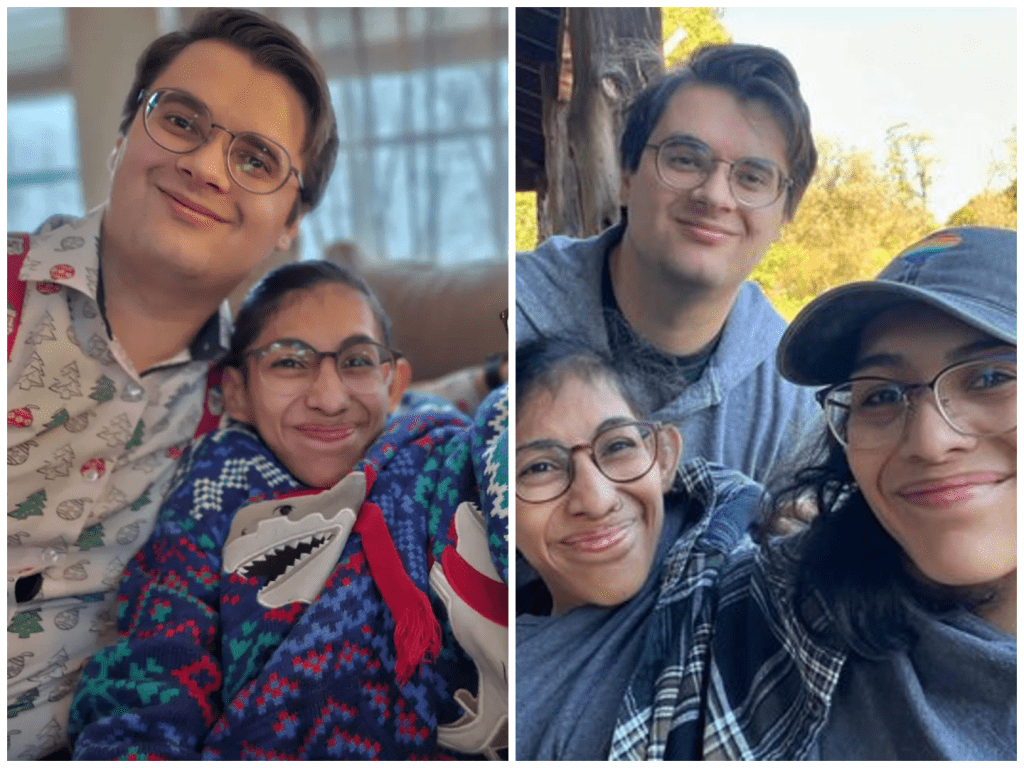
When news outlets picked up the story the following spring, headlines ranged from respectful to sensational. Some framed Daniel as a modern-day Prince Charming, others questioned the logistics of intimacy, and too many forgot Lupita’s name entirely. But the sisters have long learned how to steer their own narrative. On their YouTube channel, they answered questions with humor and candor—clarifying, for instance, that pregnancy isn’t medically possible due to their shared anatomy and hormone therapies, so no, “Who gets pregnant?” isn’t a concern. They explained that while Carmen and Daniel share emotional intimacy, physical intimacy remains within boundaries all three find comfortable and dignified. Is it unconventional? Absolutely. Is it anyone else’s business? Not really.
More importantly, Carmen and Lupita hope their lives encourage people to rethink the default settings we attach to bodies, relationships, and disability. They grew up hearing doctors debate separation surgery—a procedure that would have risked both their lives and offered no guarantee of independence. Their parents ultimately chose to keep them together, and today the twins are grateful. They say their conjoined existence is not a tragedy; it is simply their normal. They coordinate every step, every turn, often finishing each other’s sentences not from novelty but from years of practiced teamwork. They have mastered the delicate choreography of shared living while nurturing different dreams—Carmen’s dream of a family with Daniel, Lupita’s contentment in singlehood and her budding interest in graphic design.
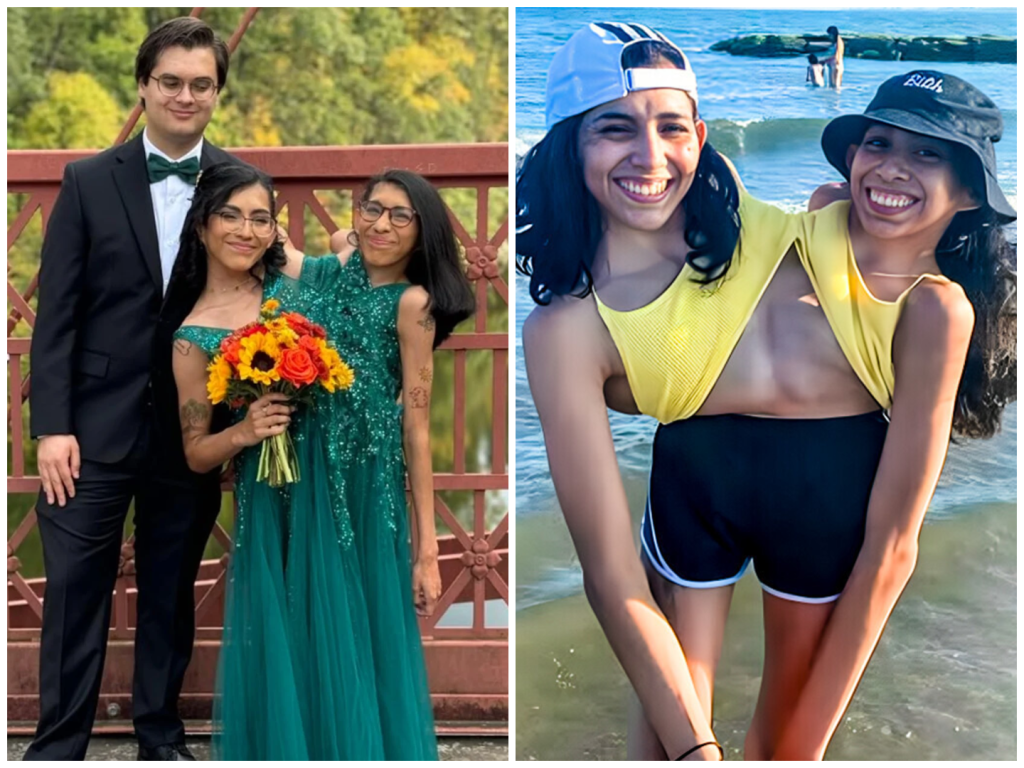
In July 2025, when People magazine highlighted their story, it used words like “groundbreaking” and “heart-warming.” Yet the sisters insist they are ordinary women doing ordinary things: paying rent, binge-watching true-crime documentaries, FaceTiming cousins in Mexico. What feels extraordinary, they admit, is the platform suddenly thrust upon them. They have leaned into advocacy, partnering with disability-rights nonprofits to push for more inclusive medical research and better social support for conjoined twins worldwide. They speak openly about mental health, body image, and the importance of accessible housing—because standard doorframes and bathroom layouts rarely consider a dual-body silhouette.
And then there’s Daniel, who never asked for a spotlight but finds himself answering questions about love that no dating manual covers. He says the secret is simple: “Listen, respect, and adapt.” Asked how he deals with internet trolls, he shrugs. “We don’t waste energy on strangers who don’t know us.” Instead, the trio focuses on what they can control: Sunday pancake mornings, evening neighborhood walks, and the joyful fact that Lupita’s sarcastic commentary makes even grocery shopping hilarious.
If you strip away the media buzz, what remains is a relationship defined by communication and consent—values that apply to every couple, conjoined or not. Carmen sometimes jokes that having a literal lifelong witness keeps Daniel extra accountable. Daniel fires back that Lupita’s instant movie critiques keep him from picking dull date-night flicks. The humor isn’t a mask; it’s a language built over years of navigating curiosity with grace.
The wedding has sparked larger conversations about marriage law and disability rights. Connecticut recognizes the union legally because Carmen, as an individual, consented. Lupita, simultaneously present but not a party to the contract, retains her own legal identity. Ethicists admit the situation is rare but not unprecedented. What is new is the public’s window into the daily life that follows “I do.” For once, a love story featuring conjoined twins isn’t ending with a medical cliffhanger—it’s beginning with vows, house plants, and shared streaming passwords.
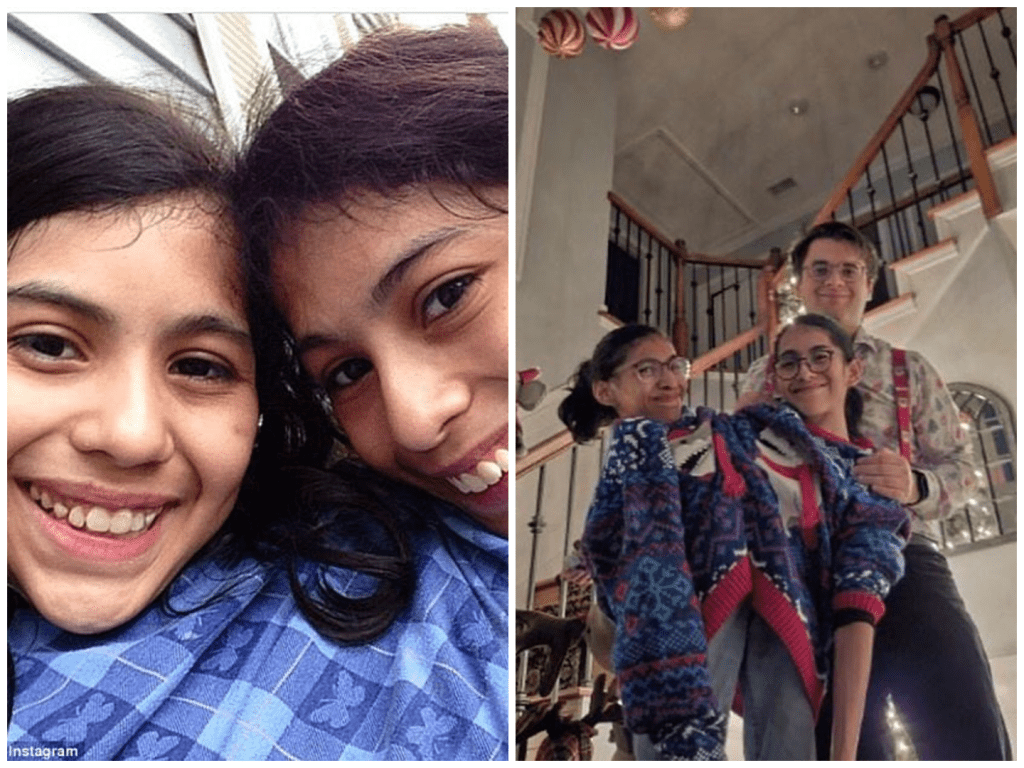
Looking ahead, Carmen and Daniel talk about traveling—perhaps to Mexico so he can meet the twins’ extended family. Lupita hopes to launch a small art business online. All three know there will be hospital appointments and medical scans; shared organs require constant monitoring. Yet they refuse to let uncertainty eclipse joy. As Carmen said in one interview, “Everyone has some version of complicated. This is ours, and we’re happy.”
Their story might make us marvel, but they hope it ultimately makes us reflect. What assumptions do we place on bodies that look different from ours? What boxes do we build around romance? Carmen and Lupita invite us to imagine wider definitions—to see that love can thrive in spaces we never pictured, that autonomy and togetherness aren’t opposites, and that a single wedding gown can drape two beating hearts heading into the same tomorrow.
So when you scroll past their wedding photos—Daniel in a black suit, Carmen and Lupita in shimmering emerald, three smiles brighter than any flash—pause for a moment. Consider the courage it takes to love openly in a world quick to judge. Then remember that somewhere in Connecticut, three people are laughing over burnt pancakes, planning their next adventure, and reminding all of us that happiness has never fit just one shape.
